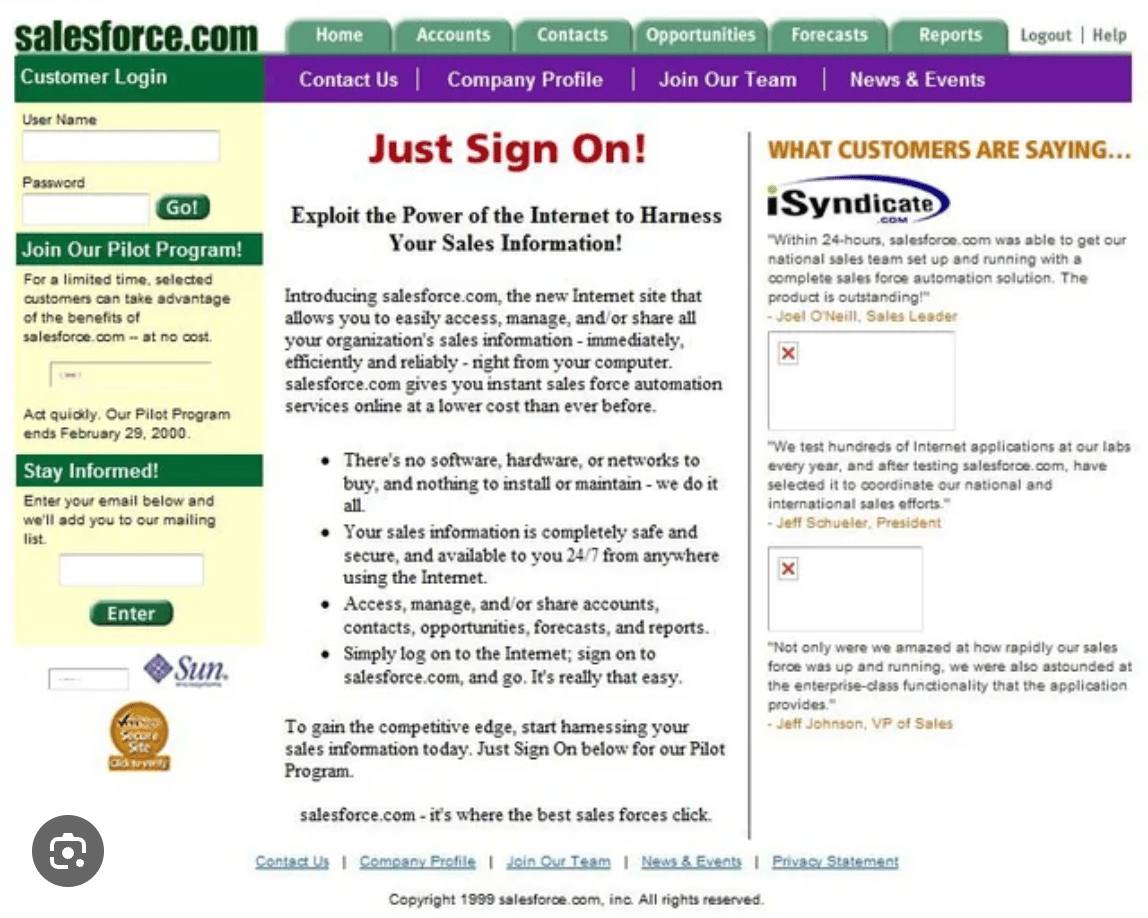
It’s a long weekend in the US. Let’s spend some time strolling down memory lane!
This weekend we’re celebrating America’s 249th birthday. Irrespective of your political leanings, one thing we think we can all agree on is that it’s been one hell of an experiment a prototype to date.
With that in mind, rather than present you with some heady design or AI topic, for this week’s issue, we’re focusing on 10 companies that turn 25 this year. Think of this issue as a “where are they now?” episode, where the rockstars in question are companies we have interfaced with over the last 25 years, in some cases, a lot.
In this issue/episode:
-Justin & Mario
Mario’s Picks
Happy Birthday, America! 🇺🇸 🎂
This Independence Day, we're spotlighting the product launches that didn't just introduce new tools but redefined how entire industry ecosystems work. These weren't just features or improvements. They were design shifts: new assumptions, new models, and new expectations that challenged conventional wisdom and created the business landscape we navigate today.
I started working in Silicon Valley in 2000, right as these companies were creating new paradigms. I've watched them grow from scrappy companies with bold ideas to the infrastructure that powers modern business. These five American companies proved that challenging big assumptions could work. Their influence continues shaping business in 2025, enabling entire ecosystems of innovation that followed, including way better UI and experience design!
Heeeere we go — my 5!!
Salesforce (1999)
Salesforce launched as cloud-based customer relationship management software, eliminating the need for costly on-premise installations.
The Shift: They challenged the assumption that enterprise software had to be owned and controlled by each company's IT department. The idea that businesses would trust critical operations to software they accessed "in the cloud" seemed radical when IT departments controlled every software purchase, installation, and upgrade cycle.
What this enabled by 2025: The Software-as-a-Service model that became the foundation for the entire subscription economy, API-first architecture, and Platform-as-a-Service thinking that powers modern business.
Original innovator: Salesforce ($34B revenue, as of 2024)
Next wave: ServiceNow (2004, $200B market cap as of 2024) built cloud-first enterprise service management; HubSpot (2006, $24B market cap as of 2024) created inbound-first CRM; Databricks (2013, $43B valuation as of 2024) pioneered cloud-native data and AI platforms
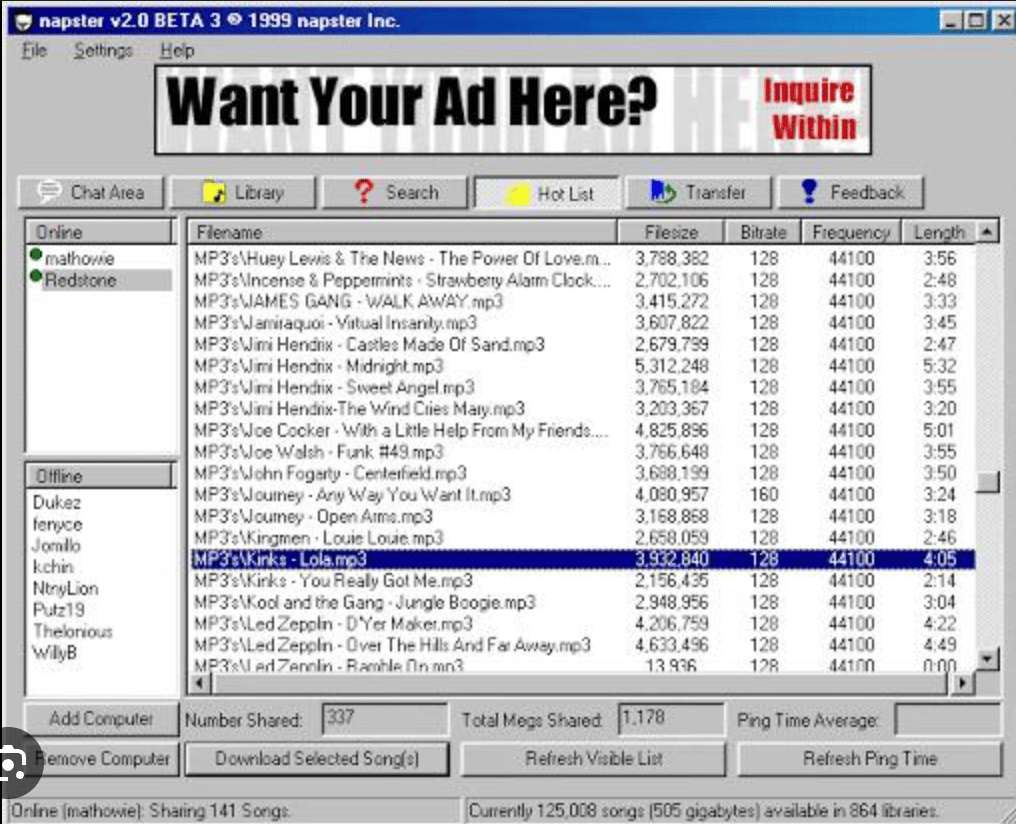
Source: versionmuseum.com
Napster (1999)
Napster launched as peer-to-peer file sharing software that allowed users to share music files directly with each other, bypassing traditional distribution channels.
The Shift: They challenged the assumption that media distribution required centralized control by record labels and retailers. Napster proved that digital content could flow directly between users, breaking the gatekeeping power of traditional media intermediaries.
What this enabled by 2025: The creator economy, streaming platforms, and direct-to-audience business models that define modern media.
Original innovator: Napster (shut down 2001, relaunched multiple times)
Next wave: Spotify (2006, $31B market cap as of 2024) built streaming with personalization; TikTok (2016, $220B valuation as of 2024) created viral content distribution and creator monetization; YouTube (2005, $31B revenue as of 2024) pioneered creator revenue sharing
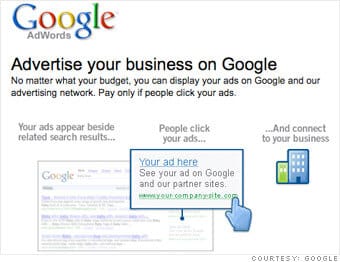
Google AdWords (2000)
Google launched AdWords as a self-service advertising platform that let businesses bid on keywords and pay only when users clicked their ads.
The Shift: They challenged the assumption that effective advertising required large budgets and media buying expertise. AdWords proved that any business could reach precisely targeted audiences with measurable results, democratizing access to marketing.
What this enabled by 2025: Performance marketing, the attention economy, and data-driven customer acquisition that powers the modern internet.
Original innovator: Google Ads ($307B revenue parent company, as of 2024)
Next wave: Meta Ads (2007, $134B revenue as of 2024) built social targeting; Amazon Ads (2012, $47B revenue as of 2024) created commerce-intent advertising; TikTok Ads (2018, $18B revenue as of 2024) pioneered vertical video performance marketing
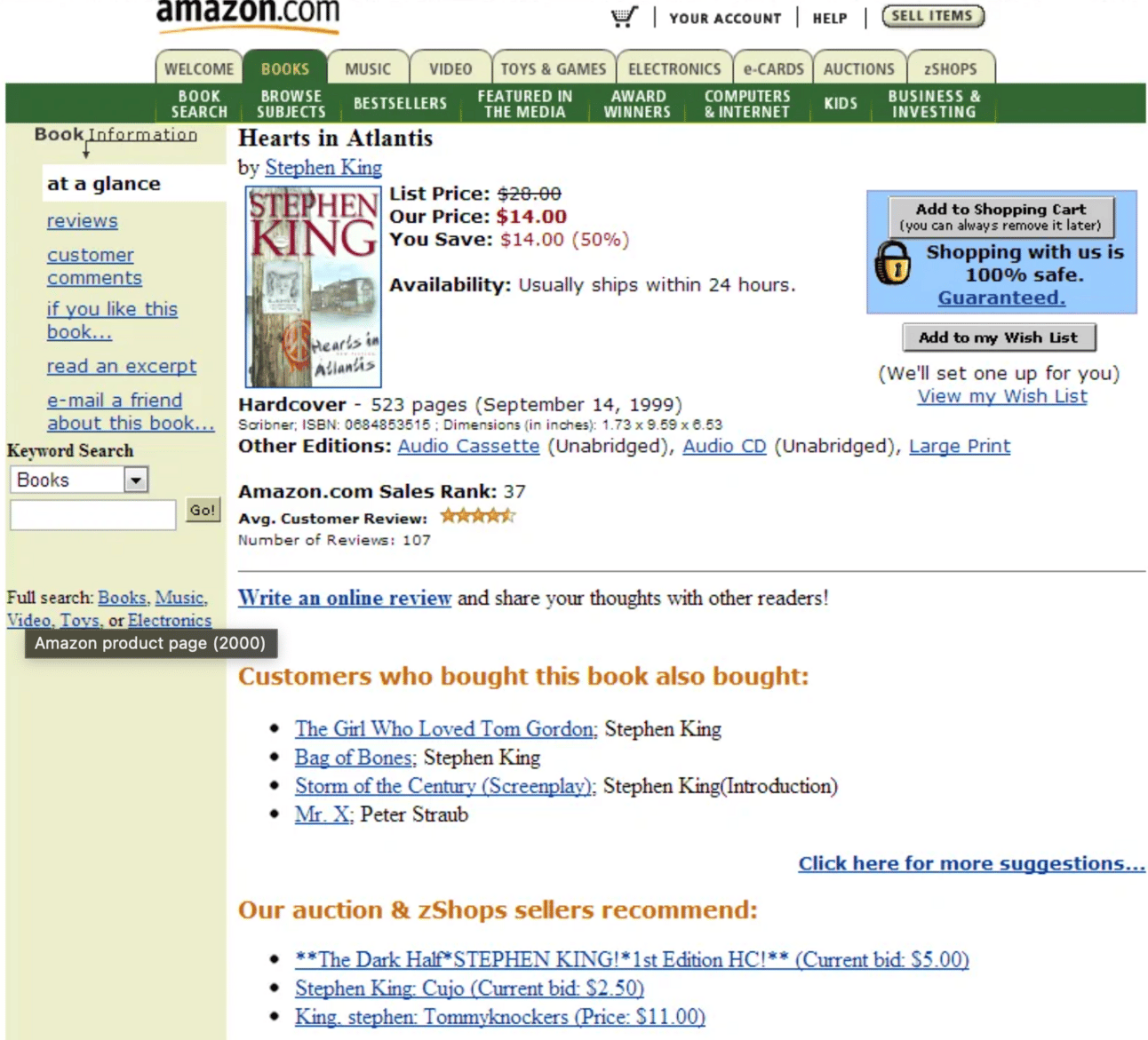
Source: versionmuseum.com
Amazon Marketplace (2000)
Amazon launched Marketplace to allow third-party sellers to list products alongside Amazon's own inventory, transforming from a single retailer into a platform.
The Shift: They challenged the assumption that retailers needed to own and control their entire inventory. Amazon proved that opening their platform to competitors would create more value than protecting their retail margins.
What this enabled by 2025: Platform economics, the gig economy, and marketplace-first business models across industries.
Original innovator: Amazon ($574B revenue, as of 2024)
Next wave: Shopify (2006, $7.1B revenue as of 2024) built merchant-first e-commerce; Etsy (2005, $2.7B revenue as of 2024) created artisan marketplaces; Uber (2009, $172B market cap as of 2024) applied marketplace thinking to transportation and local services (Uber Eats)
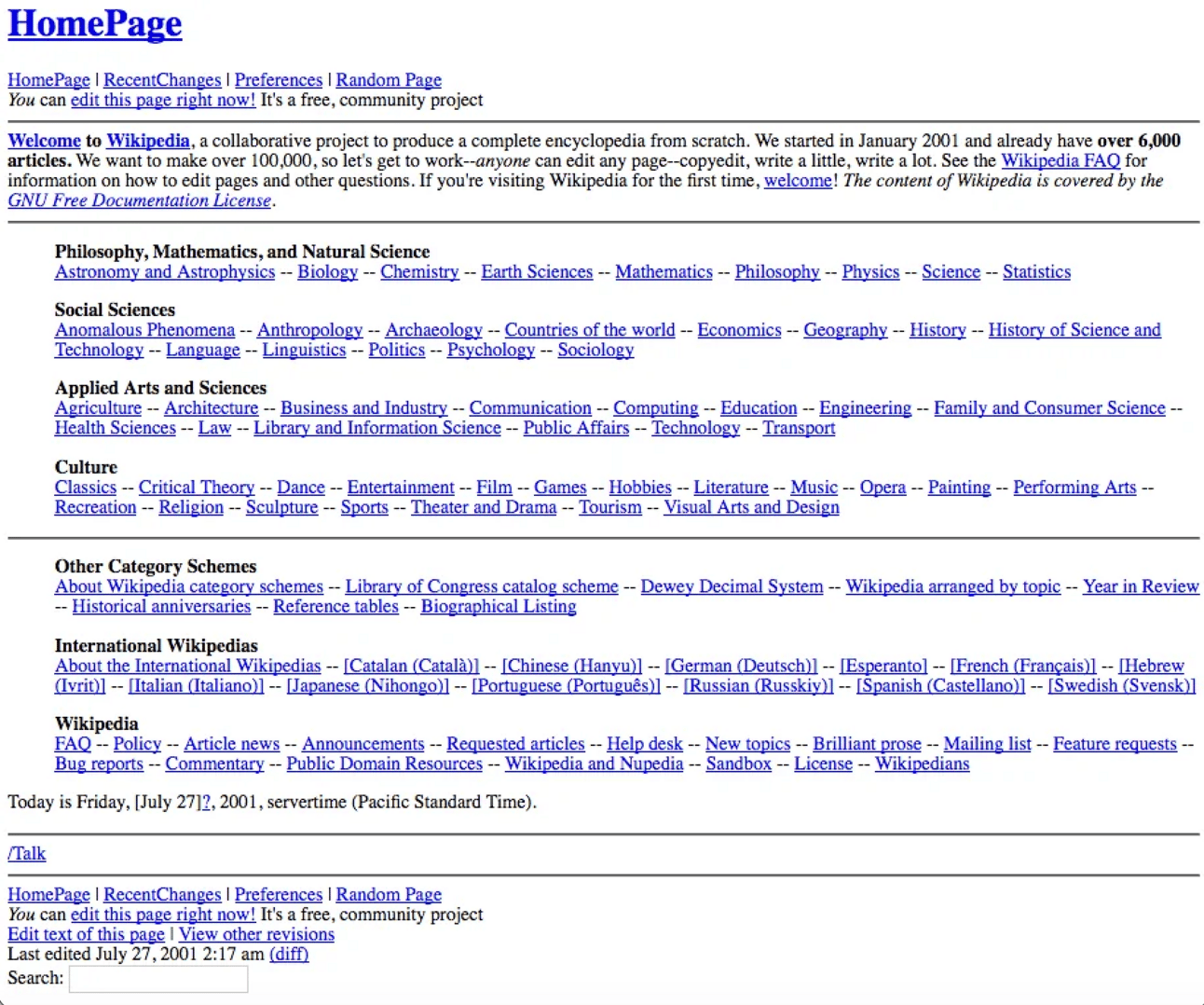
Source: versionmuseum.com
Wikipedia (2001)
Wikipedia launched as a free, openly editable encyclopedia that anyone could contribute to and edit, replacing expert-curated knowledge systems.
The Shift: They challenged the assumption that authoritative information required expert gatekeepers and institutional control. Wikipedia proved that crowd-sourced knowledge could be more comprehensive and current than traditional encyclopedias.
What this enabled by 2025: Open-source collaboration, user-generated content platforms, and collective intelligence systems.
Original innovator: Wikipedia (non-profit, $180M budget as of 2024)
Next wave: Reddit (2005, $804M revenue as of 2024) built community-driven content; GitHub (2008, acquired by Microsoft for $7.5B) enabled collaborative software development; Discord (2015, $15B valuation as of 2024) created community-first communication platforms
From "Product" to "Innovation Ecosystems"
These five launches didn't just solve problems; they created innovation ecosystems. They unlocked new behaviors, challenged business models, and built the foundational platforms that enabled entire industries of companies to follow, becoming infrastructure that thousands of other businesses could build upon.
Each company started by rejecting conventional wisdom about how their industry worked. The orthodoxies they challenged weren't just business models but fundamental beliefs about trust, control, access, and value creation!
Twenty-five years later, their influence extends far beyond their original markets. The subscription economy, creator platforms, performance marketing, marketplace thinking, and collaborative systems are now the foundation of how business gets done.
Happy birthday, America. Here's to the next wave(s) of innovation!
Justin’s Picks
America, you are now old enough to rent a car (even a Zipcar)! 🚘 🤘🏼
For me, this was a tough list to whittle down! You see, in 1999, I had just landed my first real job in tech. I had moved from the sunny, beachside community of Santa Barbara, California, where I ran a couple of copy and printing shops and surfed twice a day, to the very much inland, mostly farming community of Chico, California. Upon arriving in Chico, I decided that it was time to try on some ambition for a change, and went door-to-door handing out resumes in the 110-degree heat.
After a few interviews with various companies, I landed a job with a small office machine company (i.e., it sold copiers) that had a burgeoning IT department in the back. I sold a few copiers while learning to build and network servers.
And then the Y2K mania started to hit! We were inundated with calls from concerned customers that their servers were going to go down, due to a possible bug in the machine code. So…I spent about 6 months traveling all over small, northern California farming communities installing a patch that in the end may or may not have worked. All we knew was that when the clock struck 12:01 on January 2000, everything still worked and the world kept turning.
Here are five of the companies that were just starting at that time…
1. Blue Origin
Though nary a day goes by without hearing about Blue Origin, Jeff Bezos’s space company, in 2000, Blue Origin was just being founded…in secret with a long-term vision: enable millions of people to live and work in space. Even before we were inundated with news about their (now) biggest rival, SpaceX, Blue Origin was quietly developing reusable rocket technologies, emphasizing slow, methodical progress over flashy launches.
And…as you may already know, today, Blue Origin is a major player in the commercial space race. Its suborbital space tourism rocket, New Shepard, has flown several successful human missions, including Bezos himself in 2021. The company is also developing the New Glenn orbital rocket and a lunar lander called Blue Moon. Although it has faced delays and stiff competition from SpaceX, Blue Origin remains a critical force in shaping the future of space exploration, with major NASA contracts and long-term ambitions for off-world living.
2. Hotwire

I remember Hotwire quite well as a disruptor in the travel industry. Founded by a group of entrepreneurs with backing from major airlines, its unique business model allowed hotels and airlines to sell unsold inventory at deep discounts, without revealing brand names until after purchase. This opaque pricing model helped travelers (like me) score deals while protecting premium brands. Part of the allure of using Hotwire was the Big Reveal: Are we staying in a Motel 6 or a JW Marriott?
Although I figured Hotwire had vanished, it’s still alive and now part of the Expedia Group and continues to serve budget-conscious travelers through both its “Hot Rate” deals and more traditional hotel bookings. While competitors like Priceline and Booking.com evolved with more transparent pricing, Hotwire carved out a niche for spontaneous, deal-driven users. Though not as dominant as in its early days, it’s still a go-to for last-minute savings. Who knew?!
3. StubHub
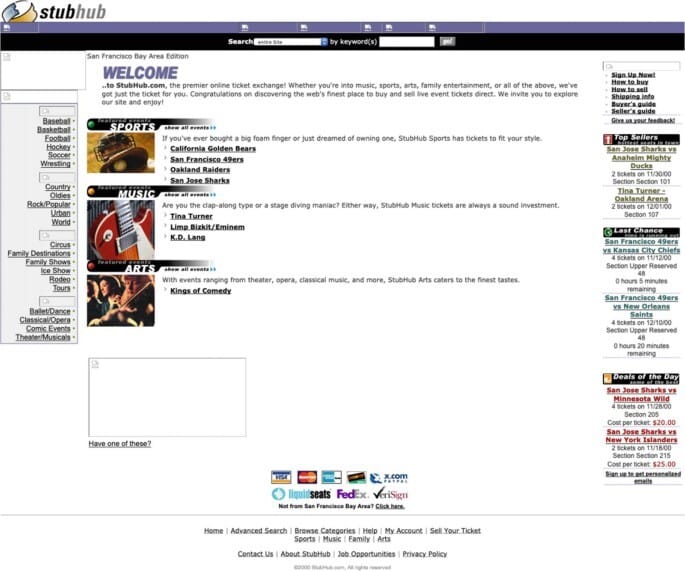
Courtesy of SpringerLink
In a very designy way, StubHub was founded by Stanford grads to solve a common problem: safely buying and selling event tickets. By acting as an intermediary and guaranteeing every transaction, StubHub introduced trust and convenience to a chaotic, Craigslist-style resale market…which was shady at best.
It didn’t take long for StubHub to become the largest ticket resale platform in the U.S., and it was eventually acquired by eBay in 2007. After a series of ownership changes, including a $4 billion acquisition by Viagogo in 2020, StubHub remains a dominant force in live event ticketing. The industry faced disruption during COVID-19, but StubHub bounced back and continues to evolve, offering digital ticketing and event insights. I used StubHub earlier this year to buy some tickets to a Sting concert. The experience was miles above Ticketmaster.
4. Top Golf

Courtesy of Golf Business News
It should be said: while doing research for this article, I was stunned (x10) to learn that TopGolf—which feels like a newish phenomenon in the US—was conceived in the UK in 2000 by brothers Steve and Dave Jolliffe, who wanted to make driving ranges more fun and tech-savvy. Using microchipped golf balls and digital scoring, they turned golf into a social, gamified experience. Remember…this was in 2000! Mindblowing.
TopGolf has exploded in popularity in the U.S., where it now operates over 80 locations combining golf, food, drinks, and entertainment. In 2021, it merged with Callaway Golf, cementing its place at the intersection of sports and leisure. With global expansion and digital play (Toptracer), TopGolf is redefining golf as an accessible, social activity for all ages and skill levels.
5. Zipcar

Zipcar’s official website circa 2000. Remember…there were no apps ;-).
In what feels like a very now moment, Zipcar was born out of a desire to reduce car ownership and traffic through short-term car sharing. Using technology to manage reservations and access, Zipcar offered a sustainable alternative to traditional rental and car ownership, by parking rentable cars all over major cities, like Boston and San Francisco, wherein customers simply rented and unlocked cars via an app.
Though like Hotwire, I thought Zipcar had gone the way of the dodo, the company has persevered and now operates in hundreds of cities and college campuses across the U.S., Canada, and Europe. It was acquired by Avis Budget Group in 2013 and continues to offer hourly and daily rentals via app-based reservations. While ride-sharing and micro-mobility services have introduced competition, Zipcar remains a core player in the urban mobility space, especially for errand runs, weekend trips, and users who need occasional access to a car.
From Bold Idea to Essential Infrastructure
These five companies didn’t just disrupt industries — they redefined what was possible. What started as daring experiments in travel, mobility, ticketing, leisure, and space has grown into something far bigger: platforms that rewired expectations and unlocked entirely new ecosystems of innovation.
Each launch in 2000 came with a radical belief: that access could beat ownership, that technology could make trust scalable, and that experiences—on Earth or beyond—could be reimagined.
They questioned everything:
Why should only governments go to space? (Blue Origin)
Why should hotel pricing be transparent? (Hotwire)
Why can’t fans resell tickets safely? (StubHub)
Why is golf reserved for country clubs? (TopGolf)
Why should you need to own a car to use one? (Zipcar)
The industries they shaped—space tech, event ticketing, urban mobility, travel, and experiential entertainment—now operate on principles they helped popularize:
Trust through tech
Dynamic pricing and peer-to-peer markets
Mobility as a service
Gamification of traditional pastimes
The democratization of complex systems
25 years later, these companies aren’t just survivors…they’re playbooks for future founders. They’re the scaffolding of ecosystems we now take for granted.
And…once upon a time, 25 years ago, they were all just prototypes.
Here’s to the class of 2000: the companies that looked ridiculous—until they changed everything.
What did you think of this week's issue?
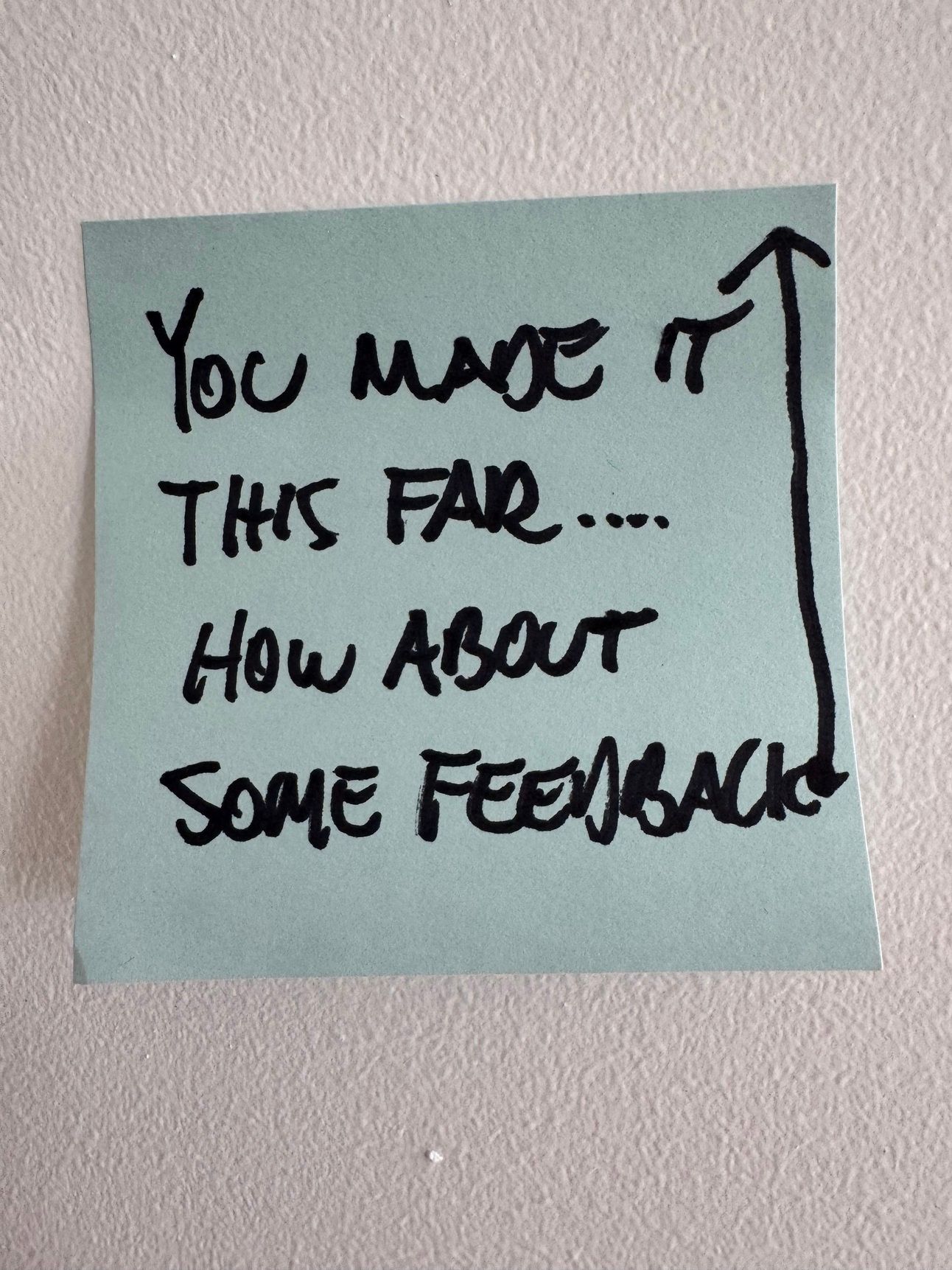
Daily News for Curious Minds
Be the smartest person in the room by reading 1440! Dive into 1440, where 4 million Americans find their daily, fact-based news fix. We navigate through 100+ sources to deliver a comprehensive roundup from every corner of the internet – politics, global events, business, and culture, all in a quick, 5-minute newsletter. It's completely free and devoid of bias or political influence, ensuring you get the facts straight. Subscribe to 1440 today.
